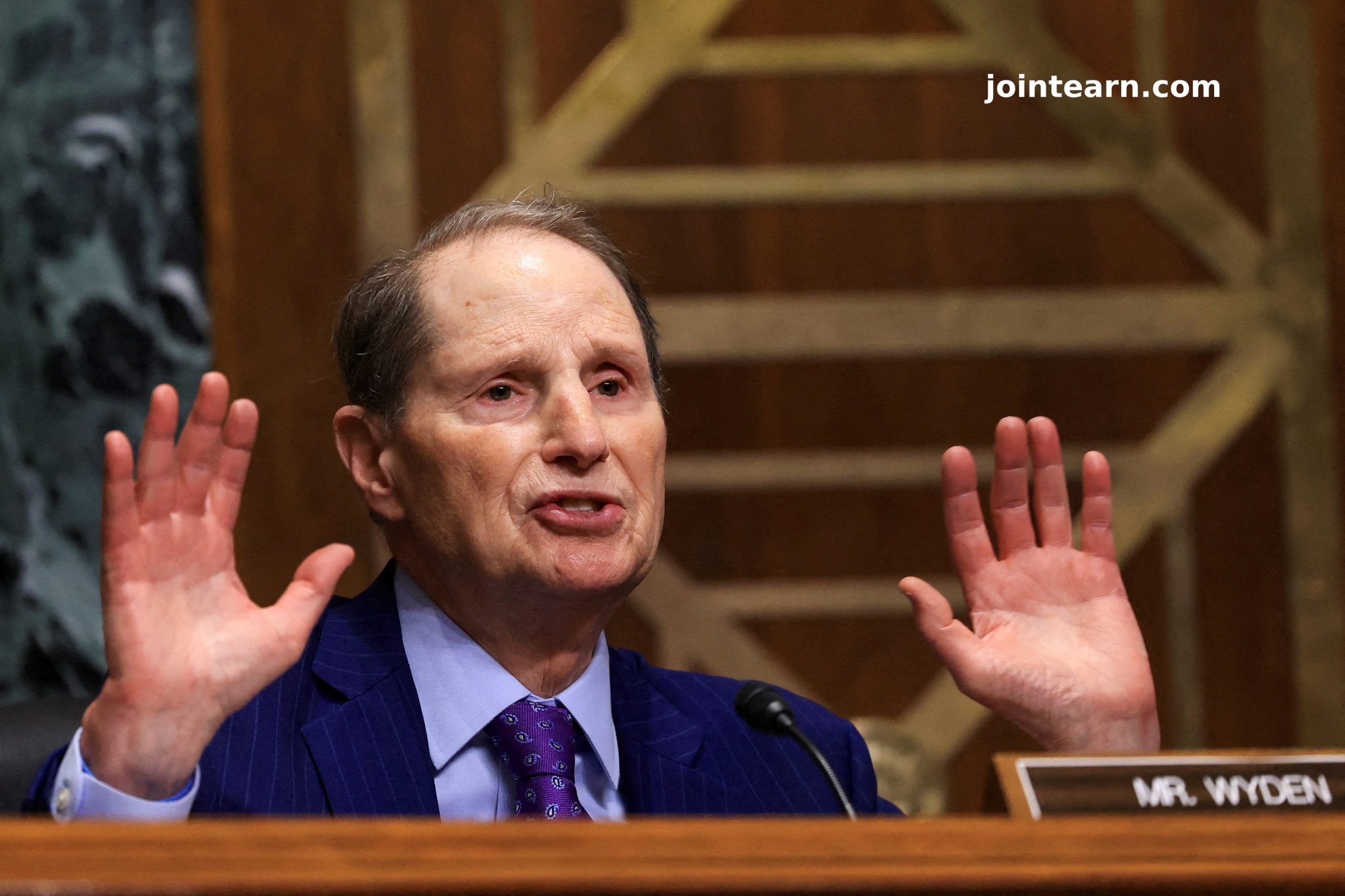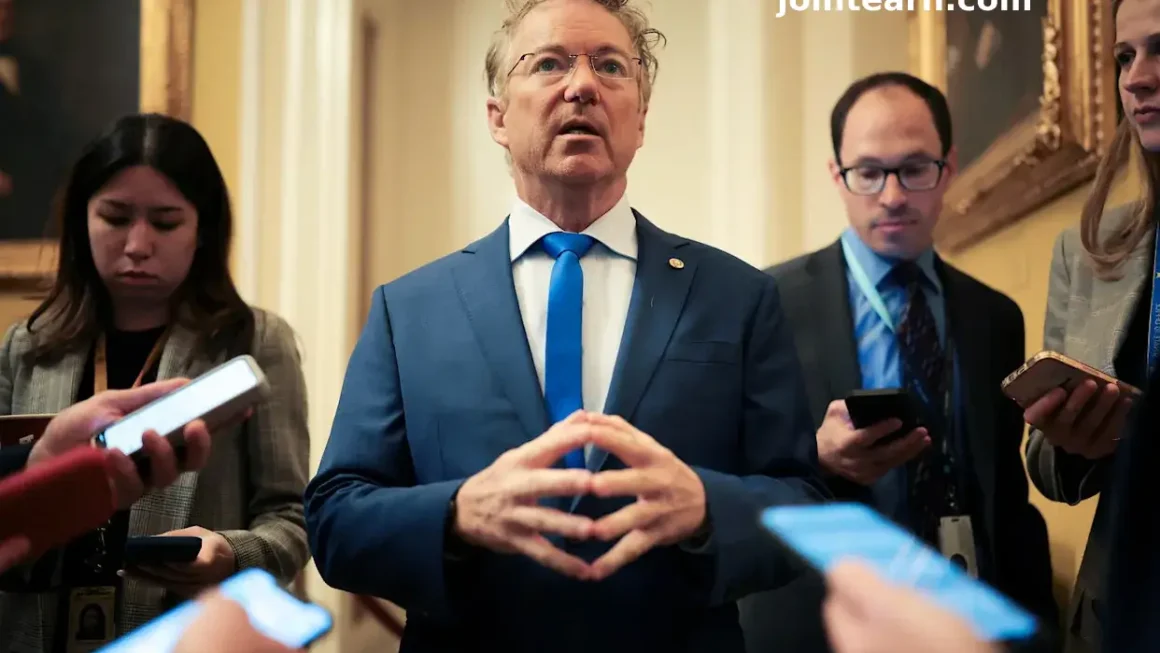The U.S. Senate attempted to pass a resolution to disapprove of President Donald Trump’s controversial global tariffs on Wednesday, but the measure failed due to the absence of two key lawmakers. Sen. Sheldon Whitehouse (D-R.I.), who was attending a climate conference in South Korea, and Sen. Mitch McConnell (R-Ky.), a vocal critic of Trump’s trade policies, were both missing from the vote.
Had Whitehouse and McConnell been present, the resolution likely would have passed, signaling a significant rebuke to the White House’s unpredictable trade policy. These tariffs, which have raised concerns about economic stability, have already contributed to volatility in financial markets, decreased consumer confidence, and even pushed the U.S. economy to the brink of recession.
The final vote was split 49-49, highlighting a deeply divided Senate on Trump’s global tariff strategy. This comes just weeks after another resolution aimed at ending Trump’s emergency powers to impose tariffs on U.S. ally Canada was successfully passed, with bipartisan support from both Whitehouse and McConnell.
Senate Efforts to Block Trump’s Tariffs Largely Symbolic
While the resolution to block Trump’s tariffs in the Senate was significant, it remains largely symbolic, as the Republican-controlled House of Representatives has refused to hold a similar vote. Despite the Senate’s actions, many Republicans in the House have consistently supported Trump’s trade policies.
Among the senators voting for the tariff resolution were Susan Collins (R-Maine), Lisa Murkowski (R-Alaska), and Rand Paul (R-Ky.), who joined Democrats in pushing back against Trump’s aggressive tariffs. The majority of Republicans, however, stood by the president’s controversial trade agenda, even as a report from the U.S. Commerce Department revealed that the U.S. economy contracted in the first quarter of 2025, the first economic decline since Q1 2022.
Trump’s Global Tariffs: Economic Impact and Rising Costs
Earlier in April, Trump escalated his tariff war, imposing a blanket 10% tariff on all imports to the U.S., as well as 125% tariffs on products from China. He has signaled intentions to increase these tariffs even further in July, targeting products from nearly 60 countries. The president claims that these measures are necessary to balance international trade and revitalize U.S. manufacturing.
Despite the president’s rhetoric, the economic impact of these tariffs is already being felt by American consumers, with rising prices on goods from China and other nations. Critics, such as Sen. Ron Wyden (D-Ore.), argue that tariffs are contributing to higher costs for American families, and some products are disappearing from store shelves altogether.
“When it comes to products from China, many of them may soon be unavailable due to the tariffs,” Wyden said. “For the products that are still available, prices are going up, which Trump is attempting to hide. The public deserves to know the real costs of these tariffs.”
Reasserting Congressional Power Over Trade Policy
Rand Paul, a libertarian-leaning Republican from Kentucky, echoed concerns about the unchecked power of the executive branch in setting trade policy. He argued that Congress must reassert its constitutional authority over trade, which has been increasingly delegated to the president through national emergency powers.
“I still support the president on many issues, but I cannot support a system where the executive has unilateral control over trade policy,” Paul stated on the Senate floor. “The Constitution does not allow the president to be the sole decider on tariffs and trade agreements.”
Paul also criticized the House of Representatives for blocking efforts to cancel Trump’s tariffs, calling the procedural move “absurd” and “dishonest.” He warned that this “congressional timidity” could lead to disastrous consequences for the country’s economic future.
Trump’s Response: More Tariffs, Fewer Products
Despite the growing concerns, President Trump shows no signs of backing down on his tariff agenda. During a Cabinet meeting, Trump suggested that U.S. consumers might have to adjust to higher prices and fewer imported goods. “Some goods we don’t need,” Trump said. “If the shelves go empty, maybe kids will just have two dolls instead of 30. And maybe those two dolls will cost a little more.”
As the trade debate continues, the impact of Trump’s global tariffs on the U.S. economy remains a hotly debated issue, with many questioning whether the president’s aggressive tariff policy is truly benefiting American consumers and businesses.












